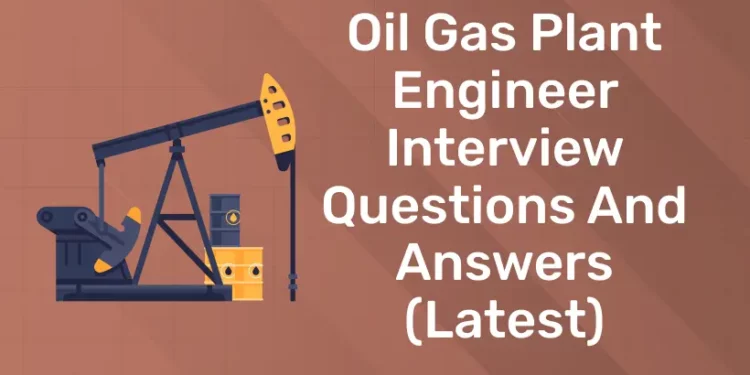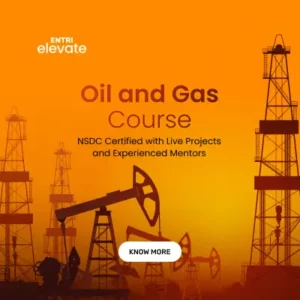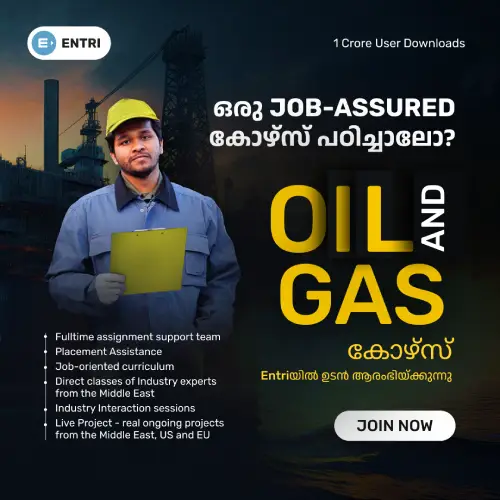Table of Contents
Due to professional advancement possibilities and the need for energy worldwide, working in the oil and gas sector can be fulfilling. Your chances of landing a job in this industry might be improved by being ready for the interview. Finding out what qualities hiring managers are seeking in suitable applicants and the kinds of questions they might pose are crucial components of this process. To assist you in getting ready for your interview, in this article we are provided some questions in oil and gas interviews with answers.
Get Certified! Get Confident! Join our Oil and Gas Course!
Oil And Gas Plant Engineer Interview Questions and Answers
Q: What motivates you to work in the oil and gas industry?
Answer: Talk about your passion for the sector, your curiosity in its advances and difficulties, and how your background and abilities meet the demands of the business. Mention any particular features of the industry that caught your attention.
Q: Explain the process of crude oil refining?
Answer: Distillation is the process of heating crude oil and dividing it into several parts or fractions according to their respective boiling points in order to refine it. The primary methods for producing gasoline, diesel, kerosene, and other products are atmospheric distillation, vacuum distillation, and additional processing such as cracking, reforming, and treating.
Q: How do you handle hazardous materials in a plant?
Answer: Using adequate personal protective equipment (PPE), educating staff on safe handling techniques, maintaining emergency response and spill control plans, and adhering to Material Safety Data Sheets (MSDS) are all necessary while handling hazardous products.
Q: Explain the concept of Enhanced Oil Recovery (EOR)?
Answer: The term “extraction of additional crude oil from an oil field” (EOR) describes methods employed in this context. The use of chemical injection (polymers or surfactants), gas injection (carbon dioxide or nitrogen), and thermal recovery (steam injection) are common techniques.
Explain the principle of gas chromatography.
Answer: Compounds that can be evaporated without breaking down are separated and examined using the analytical method known as gas chromatography. It entails a gas (mobile phase) carrying a sample through a solid or liquid stationary phase-filled column. Because different chemicals move at various speeds, separation and analysis are made possible.
Describe a time when you had to solve a challenging problem in a plant.
Answer: Describe the issue, the actions you did to resolve it, and the result in detail using an example. Stress the value of your solution, your ability to operate in a team, and your problem-solving abilities.
How do you prioritize tasks when managing multiple projects?
Answer: Talk about your methods for determining which tasks are most important and urgent, establishing goals, making a plan, and monitoring your progress with tools like project management software.
What is the role of a Process Flow Diagram (PFD) in an oil and gas plant?
Answer: The equipment and process flow within a facility are depicted in a PFD. It is crucial for planning, debugging, and optimizing plant operations since it gives a general picture of the main machinery and the flow of materials.
What is the significance of HAZOP studies in plant operations?
Answer: A controlled and methodical analysis of a complicated planned or ongoing process is known as a HAZOP (Hazard and Operability Study) in order to find and assess issues that might pose a danger to people or property. Through the identification of possible risks and operability issues, mitigation solutions can be developed.
How do you perform a risk assessment in an oil and gas plant?
Answer: Assess risks by determining possible dangers, examining the risks connected to those dangers, calculating the possibility and consequence of each risk, and putting precautions in place to lessen or manage the risks.
Can you describe a situation where you had to work with cross-functional teams?
Answer: Give an example of a time you worked together with many departments to accomplish a shared objective, such as operations, safety, and finance. Stress your ability to communicate, work in a team, and solve problems.
How do you approach the design of a new plant or facility?
Answer: Conceive first, then move on to detailed engineering, procurement, building, commissioning, and finally conceptual design. All through the process, keep in mind aspects like cost, efficiency, safety, environmental effect, and regulatory compliance.
Can you discuss the importance of process optimization in an oil and gas plant?
Answer: Increasing productivity, cutting expenses, guaranteeing safety, and enhancing efficiency all depend on process optimization. Process analysis and improvement, the use of cutting-edge technology, ongoing operation monitoring and adjustment, and more are all involved.
What is the purpose of a heat exchanger in an oil and gas plant?
Answer: Without combining the fluids, heat can be transferred between two or more using a heat exchanger. In addition to enhancing energy efficiency and preserving ideal operating conditions, it aids in heating or cooling process streams.
How do you ensure compliance with environmental regulations in plant operations?
Answer: Make sure there is compliance by keeping up with pertinent rules, carrying out routine environmental audits, putting best practices for pollution management into practice, and keeping accurate records and reporting.
How do you handle working under pressure?
Answer: Give instances from the past where you handled pressure-filled circumstances well. Talk about the tactics you use, such as organizing yourself, keeping a cheerful outlook, and concentrating on fixing problems.
What are the main factors to consider when designing a pipeline?
Answer: A few examples of factors are the kind of fluid being conveyed, temperature and pressure levels, the material of the pipeline, the influence on the environment, legal requirements, and safety concerns.
CONCLUSION
1: What is the primary purpose of a refinery in the oil and gas industry?
It takes extensive knowledge of the job’s behavioral and technical requirements to prepare for an interview as an oil and gas plant engineer. The questions contain basic technical knowledge about the handling of hazardous materials, safety precautions, the refining processes of crude oil, and the functions of diverse equipment including pumps and heat exchangers. In order to succeed as an Oil and Gas Plant Engineer, candidates should prepare for these varied questions and show that they are well-rounded professionals with the technical proficiency, leadership abilities, and industry knowledge needed.
Get Certified! Get Confident! Join our Oil and Gas Course!










